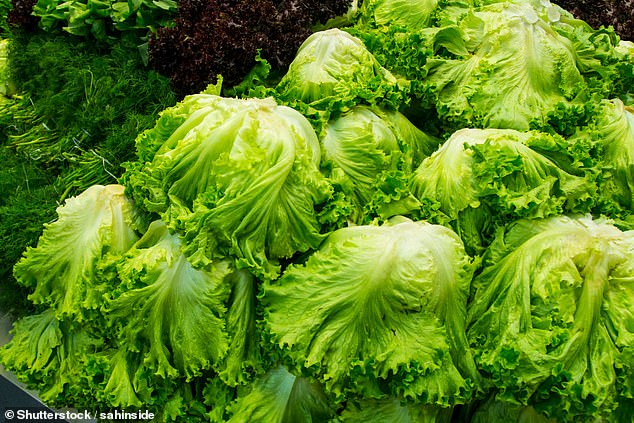E. coli: 13 more confirmed cases of serious food poisoning linked to contaminated lettuce — but signs outbreak may be over


Thirteen more people have been infected with E. coli, bringing the number of cases to 288, health officials said.
However, no further deaths have been reported since the single fatality attributed to the outbreak, believed to be linked to contaminated lettuce leaves, late last month.
In the latest update, the UK Health Security Agency (UKHSA) reported that the number of new cases continues to fall and that all confirmed patients had already shown symptoms before June 10.
However, they added that they expect “a small number of additional cases” to be confirmed.
In a sign that the outbreak may be over, UKHSA has said it will no longer publish new numbers due to the decline in new patients.

Food safety chiefs have said they are ‘confident’ that an Apollo-type lettuce caused the outbreak of the diarrhea-causing bacteria. However, work is still underway to confirm the root cause
UKHSA incidents director Amy Douglas said the drop in new cases was positive.
“It is encouraging that the number of reported cases continues to decline, but we still expect there to be a few more cases associated with this outbreak as more samples are referred to us for testing,” she said.
The infections are caused by a dangerous strain of Shiga toxin-producing E. coli (STEC). About half of the known cases have required hospitalization due to the infection.
According to UKHSA, symptoms of STEC typically range from mild to bloody diarrhea, with about half of infected people experiencing the latter.
Vomiting, fever and stomach cramps are other signs of an infection.
However, it can also cause a potentially fatal complication called hemolytic uremic syndrome (HUS), which can lead to kidney failure and death.
So far, seven cases of HUS have been reported during the current outbreak.
The E. coli outbreak is believed to be linked to contaminated lettuce leaves and was reported earlier this month more than 60 sandwiches, wraps and salads sold in 11 major stores, provided with ‘do not eat’ warnings as a precaution.
Experts believe the texture of lettuce increases the risk of E. coli contamination, even if the water is contaminated with contaminated animal feces. The fact that lettuce is not cooked (which normally kills the bacteria) also increases the risk.
Although most known cases are thought to have resulted from consumption of contaminated food, in two cases the virus is thought to have been transmitted from person to person, for example by parents caring for children who had become infected.
People are advised to contact NHS 111 or their GP if they or their children show symptoms of an E. coli infection.
In children under five years of age, the following symptoms may occur: decreased interest in breastfeeding or bottle feeding and signs of dehydration, such as fewer wet diapers.
Both adults and children are advised to call NHS 111 or their GP if they have been vomiting for two days or have diarrhoea for a week.
If you experience bloody diarrhoea or bleeding from your anus, call NHS 111 or your GP immediately.
People who are infected are advised not to return to work, school or daycare until 48 hours after symptoms have disappeared.




